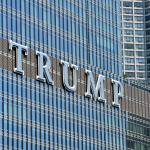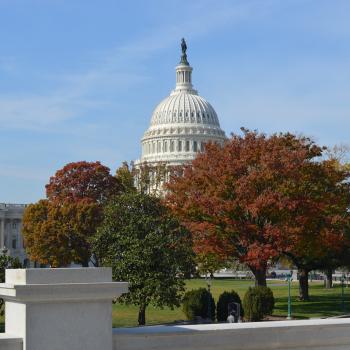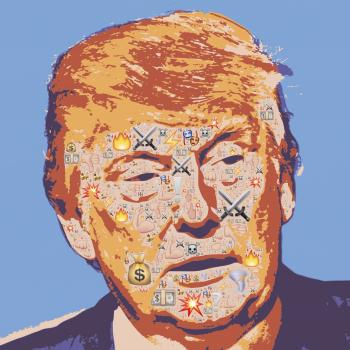The primary job of the president of the United States is to see to the defense and security of our nation, as well as to faithfully uphold the laws that govern our land.
Now let’s talk about Donald Trump.
Has anyone else noticed that from the moment it was revealed that Russia meddled in the 2016 election, up unto this very day, our president has raged against everyone except Russia?
He’s done more than simply ignore a blatant attack against our government by a hostile foreign nation.
He stood obediently beside Russian President Vladimir Putin – after a private chit-chat, that no one was allowed to be a part of – and acquiesced to the Russian talking points, throwing the American intelligence community under the bus, in the process.
Would you be surprised to find out it went even further than that?
If you’ve been paying attention, at all, then no, you wouldn’t be surprised.
In fact, so determined has President Trump been to avoid calling out Russia for what they attempted (and in some cases, succeeded) in the 2016 election, that his staff and Cabinet have been forced to tip toe around the subject, guarding their words, and even limiting their job duties, to keep from sending the friend-of-Vlad into a tirade.
The New York Times explores the case of now-former Department of Homeland Security Secretary Kirstjen Nielsen.
As you know, Nielsen was forced out of her position earlier in April, after only 16 months on the job.
It wasn’t that she wasn’t trying to do a good job. It’s more a case of being surrounded by cowards and having her efforts hobbled.
To that point, she had some real concerns about Russia’s attacks on our elections, and she wanted to put more focus on protecting our electoral process.
Officials said she had become increasingly concerned about Russia’s continued activity in the United States during and after the 2018 midterm elections — ranging from its search for new techniques to divide Americans using social media, to experiments by hackers, to rerouting internet traffic and infiltrating power grids.
Valid concerns, and in any other administration, she would have been given the freedom and respect to move on these issues.
In any other administration. This is the administration of Donald Trump.
But in a meeting this year, Mick Mulvaney, the White House chief of staff, made it clear that Mr. Trump still equated any public discussion of malign Russian election activity with questions about the legitimacy of his victory. According to one senior administration official, Mr. Mulvaney said it “wasn’t a great subject and should be kept below his level.”
Nielsen tried to bring together Cabinet secretaries, in an effort to strategize how to blunt the attacks of Russia for the upcoming 2020 election season.
She eventually gave up, and the administration has ignored (or buried) information on the efforts of the Russian government to interfere in the 2018 midterm election.
The goal of the Russian government has been to sow angst and division among Americans, dividing by partisan and racial lines.
According to the Mueller report, there was a clear preference for Donald Trump by the Russians in 2016.
Now, members of Trump’s circle are downplaying the continued threat Russia poses to us.
“You look at what Russia did — you know, buying some Facebook ads to try to sow dissent and do it — and it’s a terrible thing,” Jared Kushner, the president’s son-in-law and senior adviser, said on Tuesday during an interview at the Time 100 Summit in New York.
“But I think the investigations, and all of the speculation that’s happened for the last two years, has had a much harsher impact on our democracy than a couple of Facebook ads,” he said.
Seriously?
This is why the pampered and daft Trump clan continue to be an embarrassment.
President Trump is more concerned with crafting a legacy for himself than doing the job. He is surrounded by “Yes” men and enablers.
Nielsen and members of the intelligence community have looked for other ways to talk of the cyber-threat posed by Russia, without offending the president’s fragile ego.
The opening page of the Worldwide Threat Assessment, a public document compiled by government intelligence agencies that was delivered to Congress in late January, warned that “the threat landscape could look very different in 2020 and future elections.”
“Russia’s social media efforts will continue to focus on aggravating social and racial tensions, undermining trust in authorities and criticizing perceived anti-Russia politicians,” the report noted. It also predicted that “Moscow may employ additional influence tool kits — such as spreading disinformation, conducting hack-and-leak operations or manipulating data — in a more targeted fashion to influence U.S. policy, actions and elections.”
So of course it makes sense that Trump’s national security adviser, John Bolton, eliminated the office of cybersecurity coordinator for the White House, leaving random staffers and junior aides to deal with the growing threat.
Ms. Nielsen grew so frustrated with White House reluctance to convene top-level officials to come up with a governmentwide strategy that she twice pulled together her own meetings of cabinet secretaries and agency heads. They included top Justice Department, F.B.I. and intelligence officials to chart a path forward, many of whom later periodically issued public warnings about indicators that Russia was both looking for new ways to interfere and experimenting with techniques in Ukraine and Europe.
One senior official described homeland security officials as adamant that the United States government needed to significantly step up its efforts to urge the American public and companies to block foreign influence campaigns. But the department was stymied by the White House’s refusal to discuss it, the official said.
Because Trump’s ego is more important.
Meanwhile, Secretary of State Mike Pompeo is living in an alternate universe, where this administration is actually hard on Russia for their election interference.
“Russia interferes in a number of places,” Mr. Pompeo said. “I don’t think there’s been a discussion between a senior U.S. official and Russians in this administration where we have not raised this issue about our concern about Russia’s interference in our elections.”
“We will make very clear to them this is unacceptable behavior,” he said.
It’s not about raising the issue. It’s about our president taking their word for it and railing against those who bring it up.
Right now, social media and other internet outlets, such as Facebook, Google, and Microsoft have been doing their part by taking down accounts that have been linked to Russian troll farms or represent misinformation campaigns.
Thankfully, it’s not as if our government is doing nothing.
Before the midterms, the United States Cyber Command created a so-called Russia Small Group of American officials to disrupt election influence campaigns by two groups whose members were indicted as part of Mr. Mueller’s investigation: the G.R.U., which is Moscow’s military intelligence agency, and the Internet Research Agency, a troll farm with ties to Mr. Putin.
The United States disrupted the Internet Research Agency’s servers around the midterm elections in November, according to officials briefed on the actions. A declassified after-action report on the 2018 countermeasures by the United States government was expected to be released early this year but has never been published.
That’s also likely due to the fact that our president doesn’t want to hear about it.
A senior adviser with DHS, Matthew Masterson, spoke of the continued cyber threats posed by Russia.
“We continue to expect a pervasive messaging campaign by the Russians to undermine our democratic institutions,” Mr. Masterson said in an interview. “We saw it in 2018, continue to see it and don’t expect it to subside.”
“For us, we recognize that the goal is to undermine confidence in the elections and sow doubt,” Mr. Masterson said.
So, yes. Their focus isn’t solely on Trump. They want to see countrymen at each others throats. They want chaos and civil war. They want us so divided and in turmoil, that we don’t notice what they’re doing across the globe, in the meantime.
“Russian intelligence’s 2016 covert actions to divide Americans by interfering in our election were so successful,” said Kevin T. Carroll, a former C.I.A. officer who was a senior official at the Department of Homeland Security during the first two years of the Trump administration.
“Putin will amplify them in 2020,” he said.
And unless we have a president who cares more about the nation’s well-being than his own ego – or any potential business deals with Russia, in the future – we will continue to be made easy targets.










